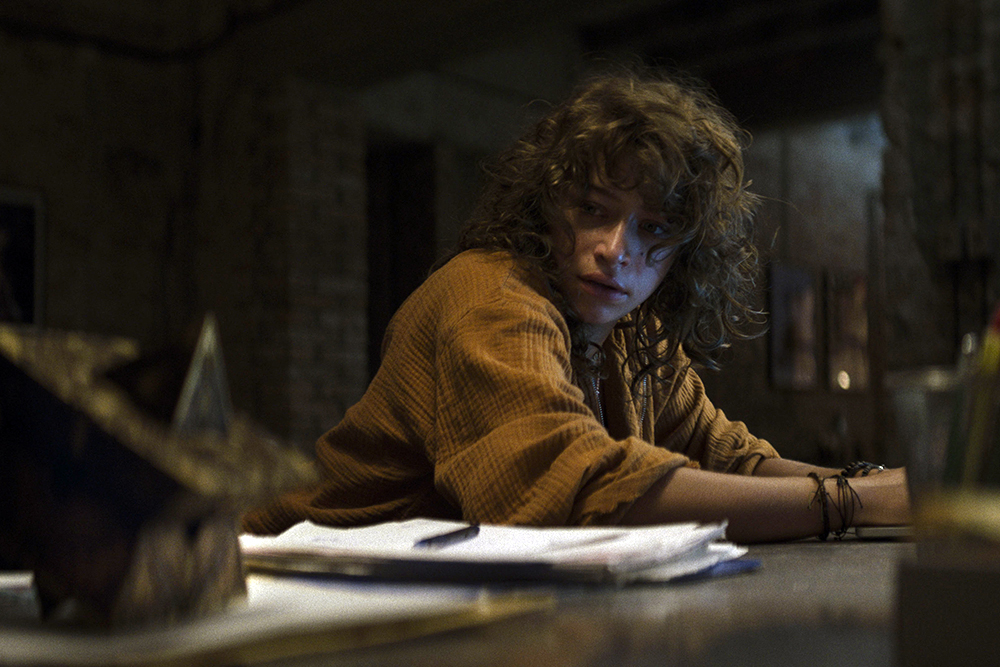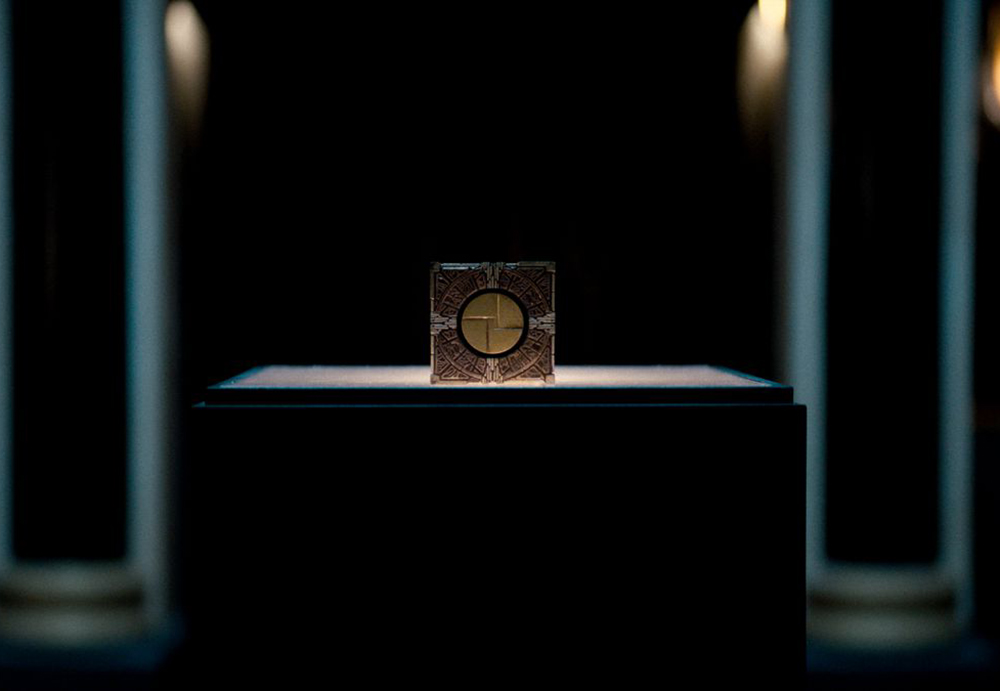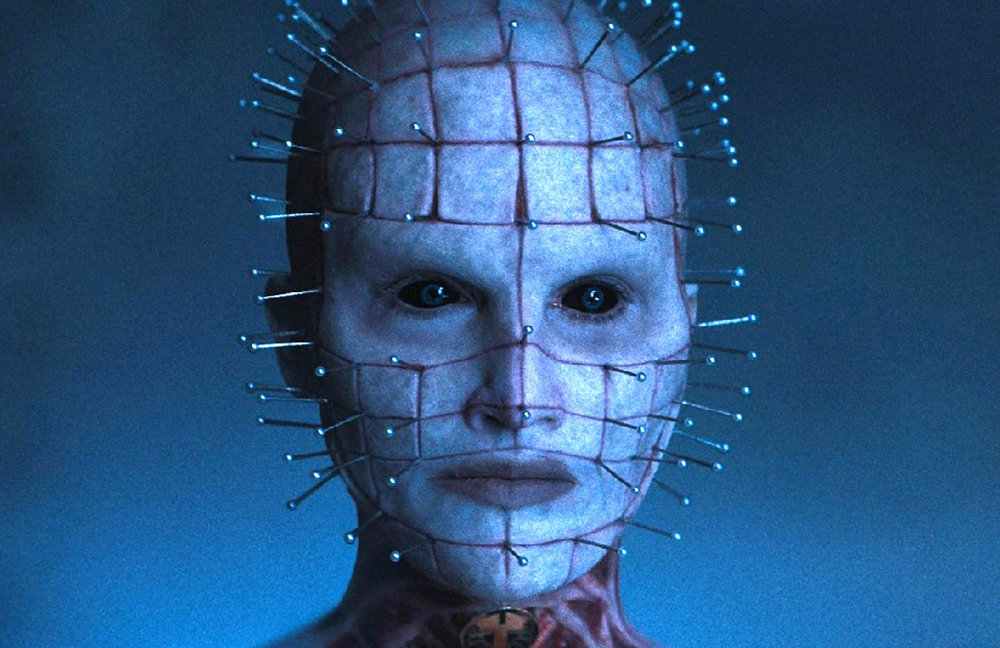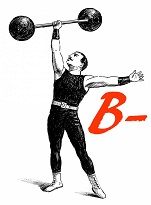There have been 10 movies in the “Hellraiser” franchise, not counting Director David Bruckner’s latest one, credited as a “reimagining.” I’ll be honest—I haven’t seen most of them. The ones that I have seen, not counting the franchise’s 1987 opener, “Hellraiser,” have all seemed to stray from horror author Clive Barker’s original themes. They abandoned the focus on sex, pleasure, and depravity. Instead, they turned the series’ iconic villain, ‘Pinhead’ (mostly played by actor Doug Bradley) into a slasher villain a la Michael Myers or Jason Voorhees. The intent of Barker’s creation—modeled after his novella, “The Hellbound Heart” (1986)—of pleasure that becomes unimaginable pain, and of escalating depravity, became lost. But what became lost most of all was the horror of it, and the fact that the films’ central antagonists were hedonists who did this to themselves.
Bruckner’s reimagined “Hellraiser” opens today, exclusively on Hulu. It’s fared decently with advance critics, landing it at a 73% on Rotten Tomatoes. The film isn’t perfect. I think with something like “Hellraiser,” something so lauded in the horror community, status like that would be hard to attain. But, overall it works. This is because it takes hard steps to distance itself from the slasher genre, and place itself firmly in the realm of the hedonistic otherworld that the original film promised slightly, but did not fulfill. The film is atmospheric and dark (lighting wise, and thematically). It has secrets and keeps them, hiding its most hideous acts, leaving them up to the imagination. It is filmed slickly and with CGI; but for a film that revolves around summoning monstrously disfigured and flayed demons from another realm intent on suffering, it is important to state “Hellraiser” is not, in even the slightest degree, an addition to the abhorrent “torture porn” cinema collection. The film’s events are what happen when you go looking in places you should not venture.
A New ‘Hellraiser’ for a New Era
“Hellraiser” centers on a woman named Riley (Odessa A’zion). She’s a recovering drug addict who becomes the holder of a mysterious puzzle box when her brother (Brandon Flynn) disappears. She’s living in his house with his boyfriend Colin (Adam Faison), occasionally hooking up with a man she’s met in rehab (Trevor, played by Drew Starkey). Riley’s addiction and recovery is painted with a degree of realism. There’s a certain success that her brother, living an on-the-level life has that she probably envies. However, she rejects his attempts to help her. Riley has been clean for only six months, no great amount of time, and she feels the pressure of relapse. Therefore it’s no surprise when she helps Trevor to rob a warehouse, looking for treasure. However, she finds only a mysterious puzzle box that belonged to a hedonistic billionaire, Voight (Goran Visnjic). Playing with the box leads to her brother’s disappearance. Finding him—and the secret of the box—then becomes the focal point of the movie.
The set pieces of “Hellraiser” are engaging. The ‘box’ has undergone a redesign. It turns, like a puzzle. Fans of Clive Barker’s novels will note that it has odd geometry. The box opens up into black voids, and twists and turns into mathematically illogical shapes, similar to ways Barker described. It cuts its solver, and the victims’s blood summons the Cenobites, monstrously disfigured travelers from another dimension who take the solver with them to experience torments of nightmarish proportions. In “The Hellbound Heart,” one character described the bliss he felt when he was but able to take a simple breath without unimaginable pain amongst the Cenobites. In “Hellraiser” (2022), ‘The Priest’ (played sinisterly by Jamie Clayton), remarks to Riley that one character’s end “was exquisite.” But, like Barker’s original story, much of the sufferings that occur in these creatures’ ‘Hell’ are left to the imagination—and it’s for the better.
Going Back to Barker’s Roots—the Cenobites Aren’t ‘Slashers’

There are many things that work about “Hellraiser.” Firstly, its addiction themes are apropos for the material, as Riley and others are, in fact, already suffering. Hedonism is what brought Frank Chapman in the original film to the Cenobites’ grasp. However here, it’s love for her brother that brings Riley to them. A’zion does an adequate job portraying an addict that doesn’t have her life together, but has a morality to her that makes us believe she wants to help her brother, even if she doesn’t know she can. She’s a strong female lead, and her brother and his boyfriend are strong allies. Starkey’s Trevor is a mixed bag; but more can’t be said about him without wandering into spoiler territory.
And then there’s Voight, played as well as the material will let him by Goran Visnjic. Voight is a monster. Without offering spoilers (as we see this much in the trailer), he has summoned the Cenobites before, sacrificing a young sex worker in the process. Otherworldly pleasure—a gift from the Cenobites—is his ultimate goal. But when we see him reappear in “Hellraiser,” we glean he may have gotten more than he bargained for (avoiding spoilers, his particular torment is quite original, and in line with Barker’s original concepts). He threatens, demands, and attempts to intimidate The Priest to release him from their ‘agreement.’ In one of the most sardonic moments in the film, it goads, “let us in and we can discuss your displeasure.”
Jamie Clayton Nails ‘The Priest’ with Scary Precision
I realize I’m avoiding revealing certain things, and also realize that I’m writing this for people most likely familiar with the “Hellraiser” mythos. One has to question if random Hulu subscribers will click on “Hellraiser” for a fun night in with popcorn and the shades drawn, experimenting on a new horror film, or if most of this movie’s audience are diehard Barker fans looking to see if this new rendering is closer to his work. For those people, the quick answer is: it is. It’s dark, foreboding, sinister, and a vast improvement on the series’ many sequels. In fairness, Clayton has really the only speaking role amidst the monsters. However, I love that Bruckner dropped the ‘Pinhead’ moniker—though that is what she resembles—something that was made up for the first film when they decided they needed a ‘lead’ Cenobite. The Cenobites here are all horrific in their own ways (visually and behaviorally). On top of that, the film distorts Clayton’s voice to a high degree. It sounds otherworldly, amplified, and demonic, almost like something from a gothic nightmare.

However, I feel that viewers that know nothing of Barker’s work can still enjoy this film. It’s adequately creepy, and prior knowledge of the “Hellraiser” world is not necessary to watch it. It’s a movie that doesn’t follow a standard slasher, nor the type of horror film we usually find on streaming services. Its lead is good, even if the film paints some of the other characters more thinly. I feel like more time should have been devoted to Voight’s descent into hedonism, but apart from that, “Hellraiser” doesn’t do much wrong. Its gore, when shown, is sparse and minimal (apart an ending sequence, that, graphically, might trouble some squeamish viewers). But for a film whose legends include torments of hell and eternal punishment, this is not a sick movie like “Saw” or any of its despairing, tragic ilk.
Not Perfect, but a Good Film
All-in-all, “Hellraiser” is sufficient. It features a creepy, gothic atmosphere, a likable lead, and Clayton in an adequately demonic performance. It’s a return to Barker’s roots. Its end—fitting—may leave room for a sequel, or it may not. It’s not obvious. While some of the film feels rushed, it has its merits. If you’re a Barker fan, or just want a creepy, off-kilter film, “Hellraiser’s” a good way to spend this Halloween.
“Hellraiser” is available to watch exclusively on Hulu with subscription or trial.
Support the Site: Consider becoming a sponsor to unlock exclusive, member-only content and help support The Movie Buff!


